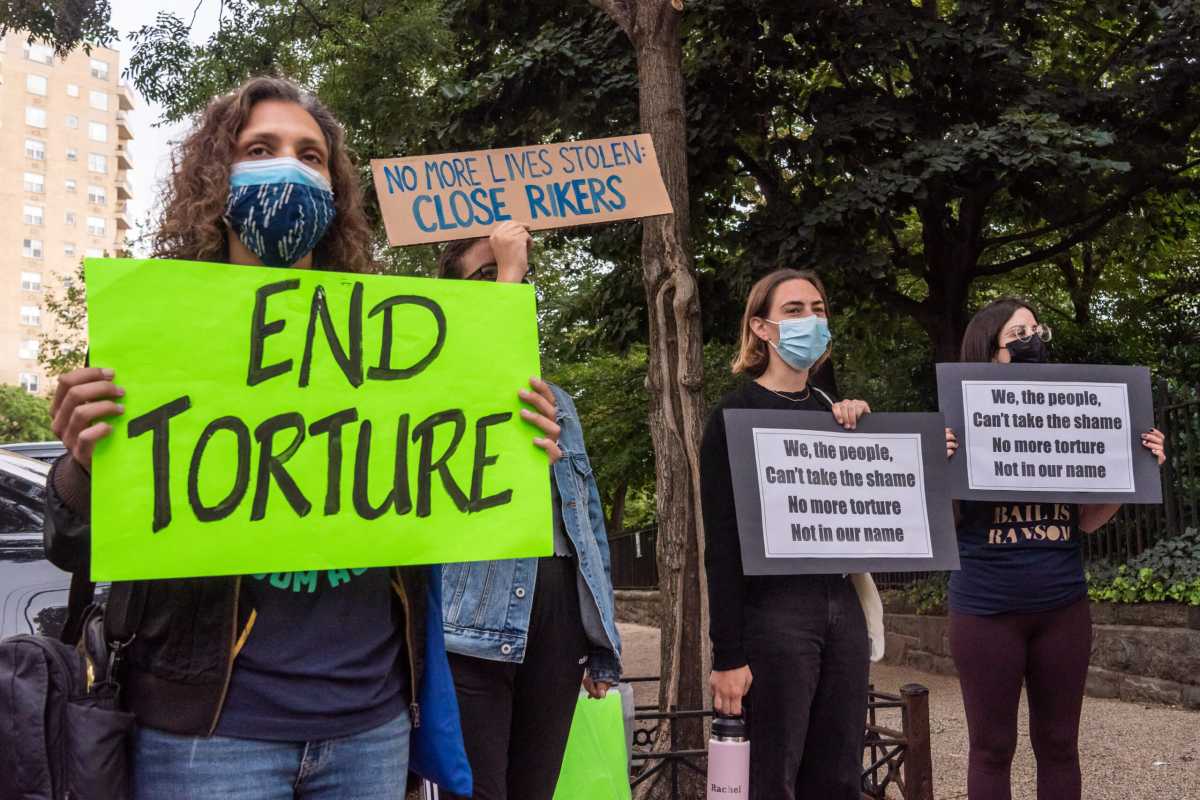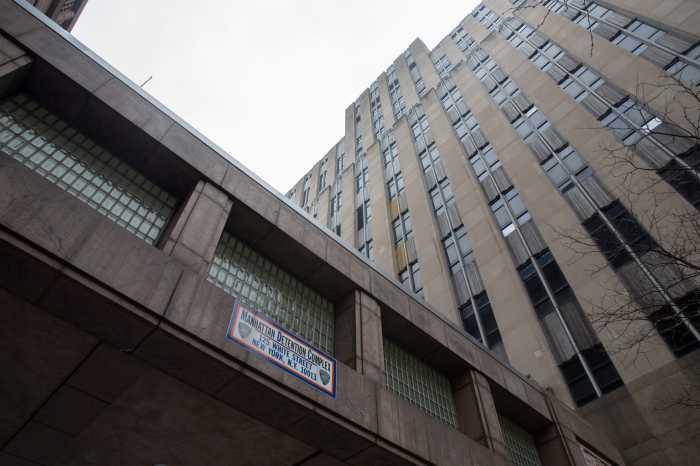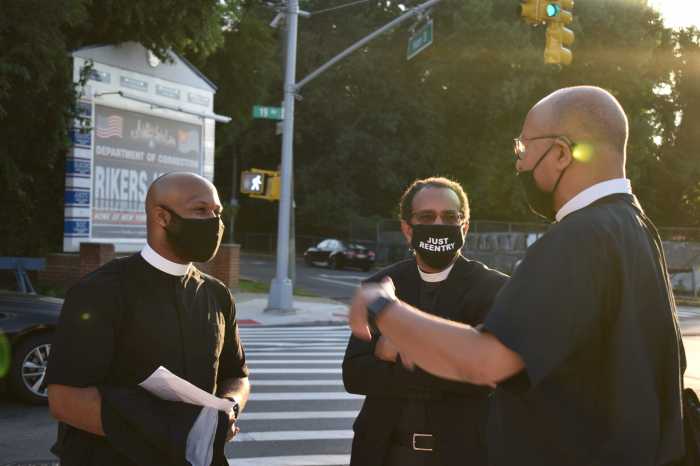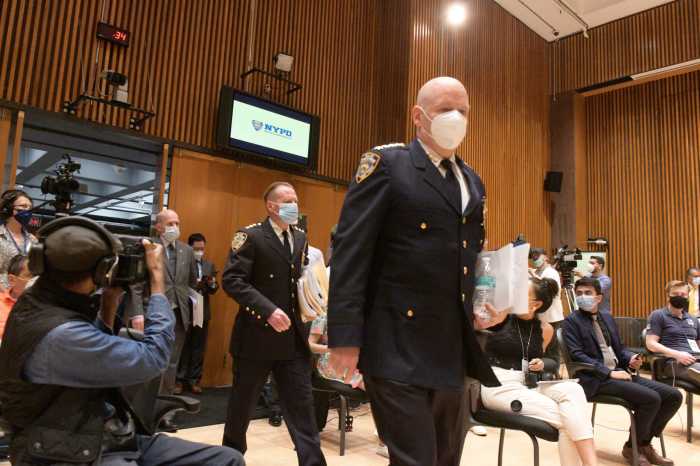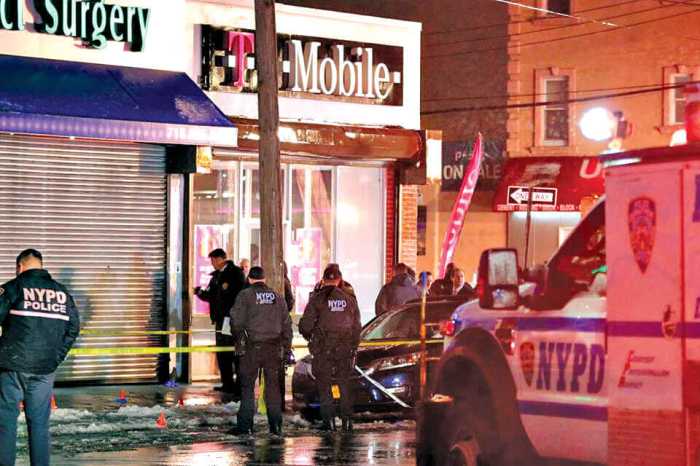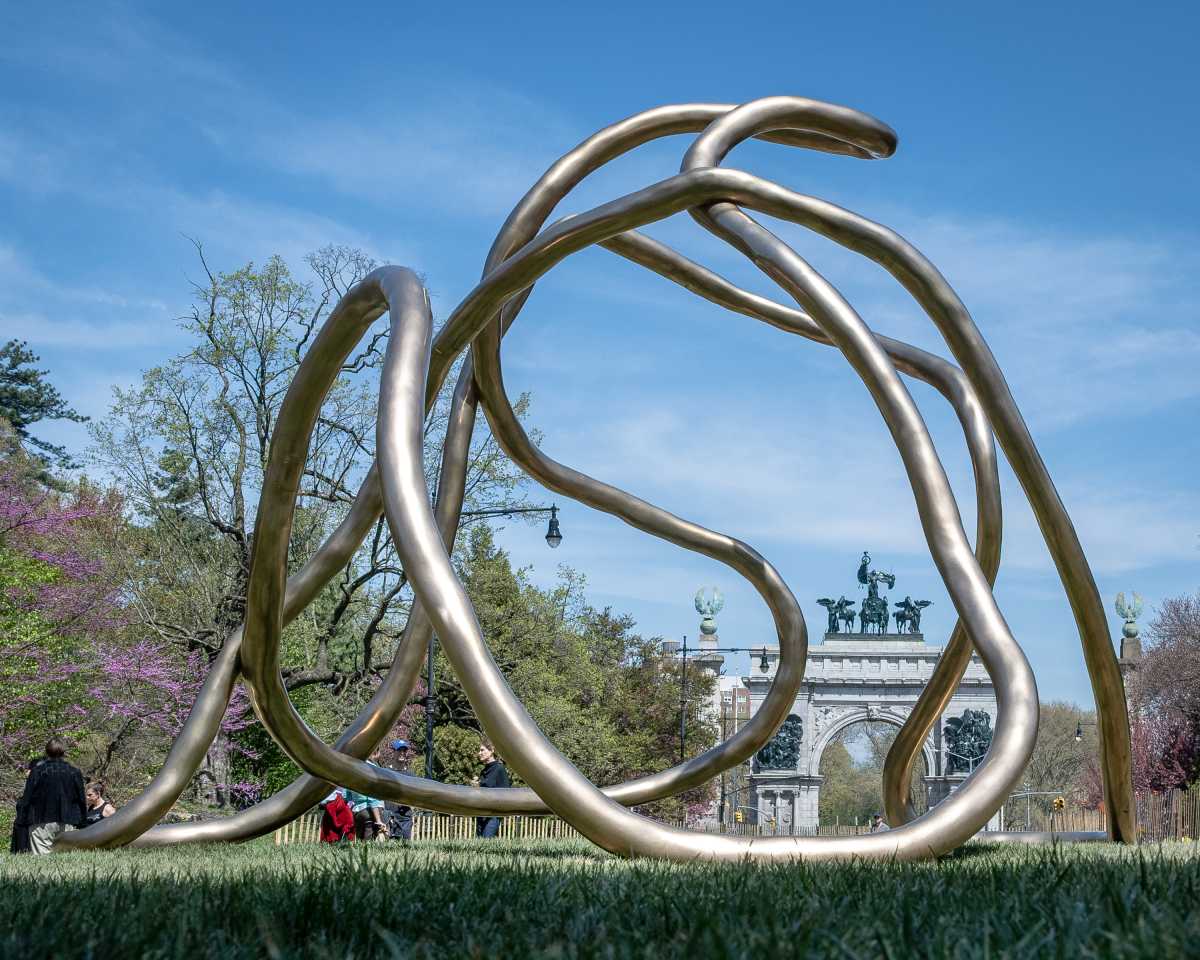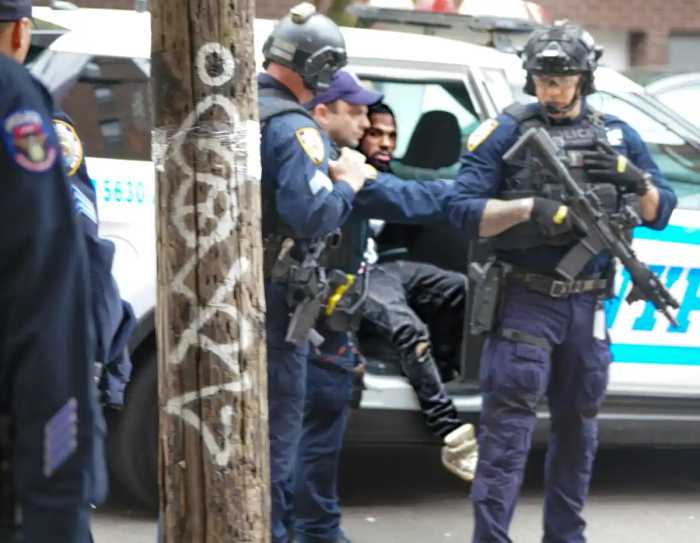Two days after the death of Isaabdul Karim inside the city’s jail on Rikers Island — the 11th fatality on Rikers Island this year — survivors of Rikers and human rights advocates protested outside Gracie Mansion on Sept. 21, demanding that Mayor Bill de Blasio close the troubled prison complex.
Wheelchair-bound Karim, who had been held on a non-criminal parole violation, died on Sept. 19 in the North Infirmary Command after telling staff that he wasn’t feeling well. According to the Department of Correction, he died of natural causes. The official cause of death is under investigation by the Office of the Chief Medical Examiner.
Holding a banner with the names of the 11 victims who died on Rikers Island in 2021, the small but boisterous crowd of activists hoped to reach the mayor with their demand that he uses the full extent of his power to decarcerate Rikers as he left his official residence.
They also urged the City Council to end all forms of solitary confinement, medical deprivation and abuse at the problem-plagued jail.
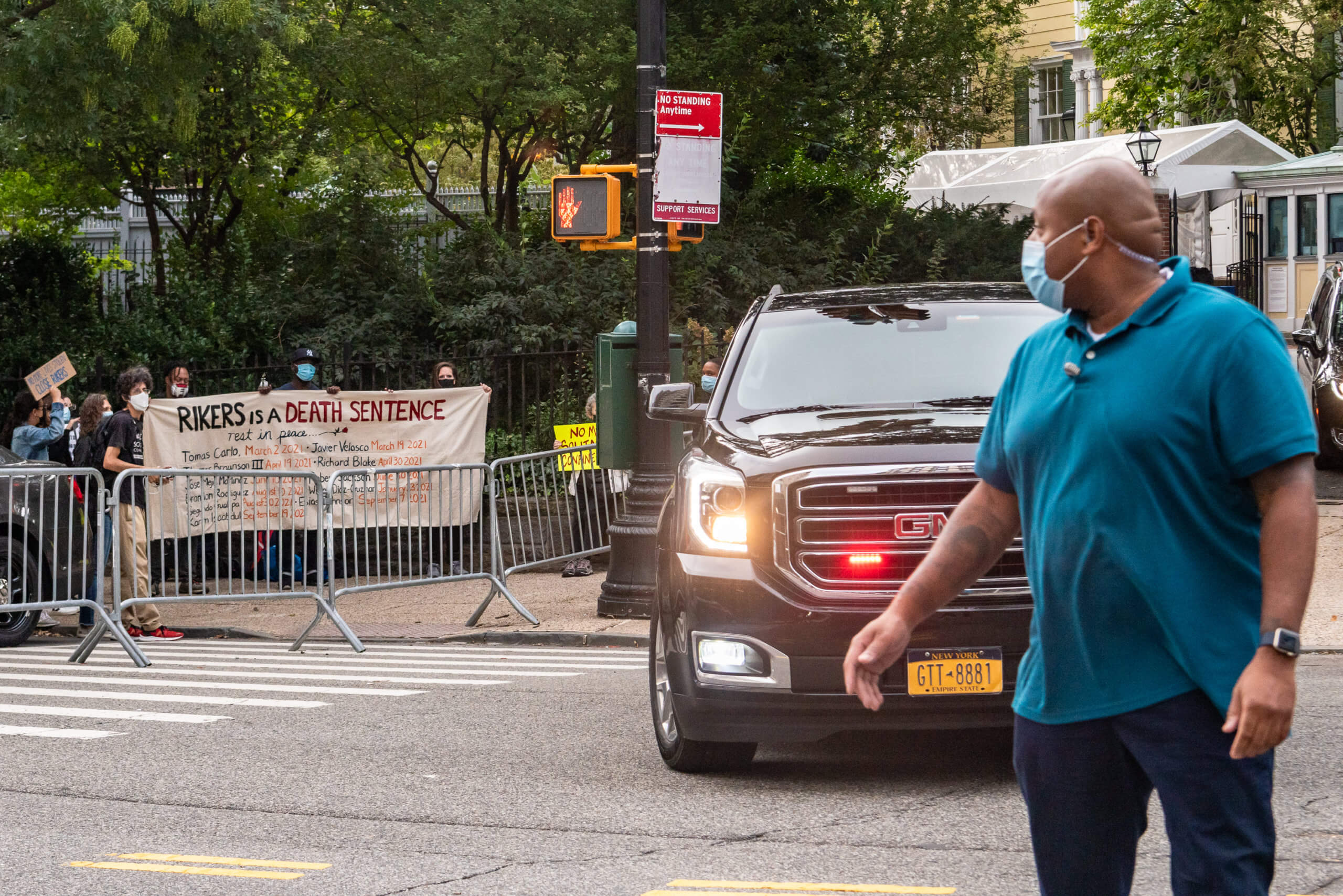
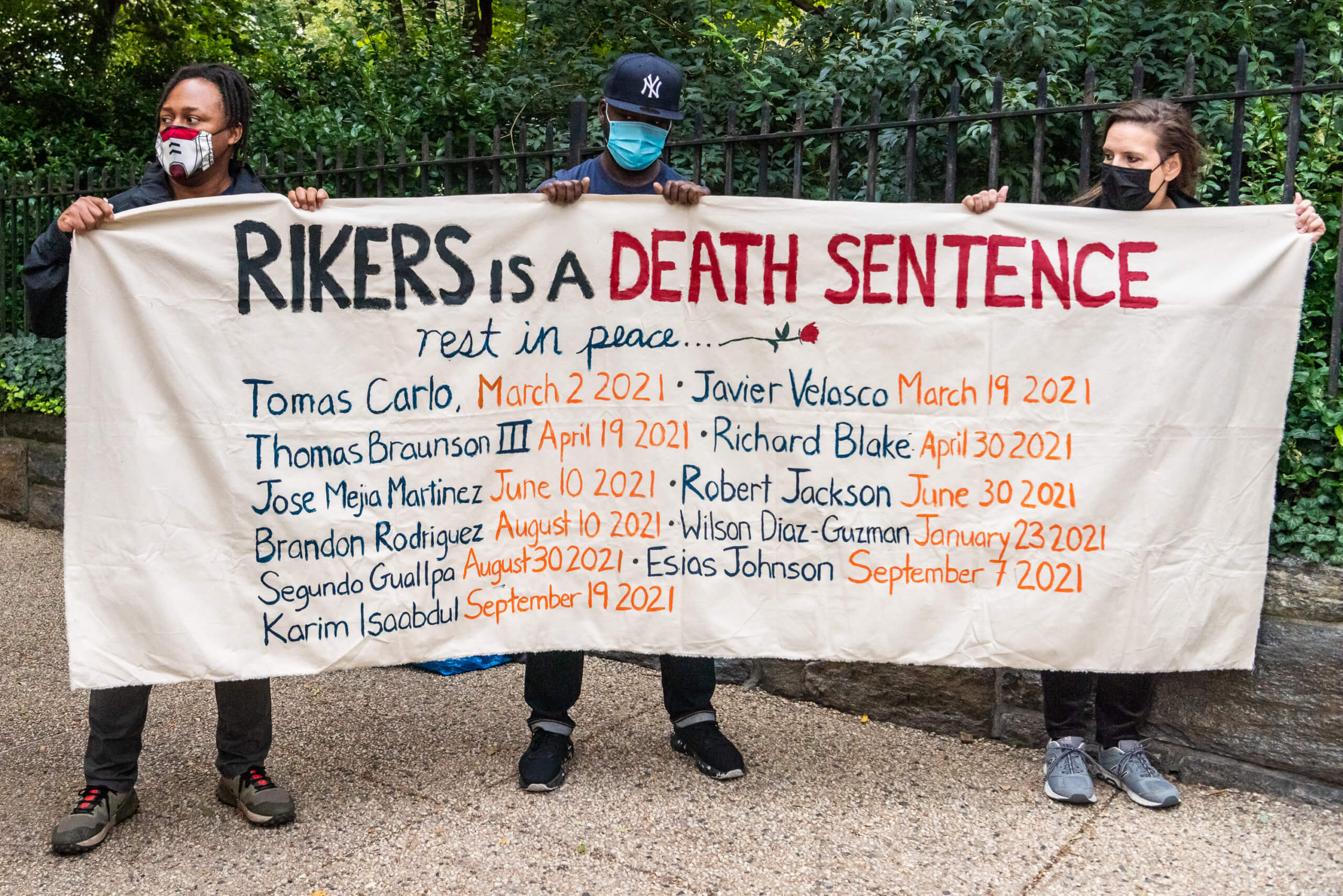
Darren Mack, a Rikers Island survivor and co-director of Freedom Agenda and member of the Jails Action Coalition, spent 19 months in the city’s jail when he was 17, and the prison population was 20,000.
“It was like a hands-off the brute force that was utilized to manage it and maintain it and allowed to continue to exist,” Mack, who was charged as an adult, recalled.
He feels the inhumane conditions at Rikers Island are intentional neglect. The crisis, he said, is exacerbated because correctional officers aren’t doing their job or aren’t showing up for work.
The isolation of Rikers and the lack of services also breed a culture of violence, Mack observed.
“People who have mental health issues not getting the therapeutic help and assistance that they need, and seeing people that have substance abuse issues, not getting assisted they need, and just being jailed and not being treated is inhumane,” Mack said.
Brandon Holmes joined the protest in solidarity with family members who spent time on Rikers Island and to fight for the families of the eleven inmates who died at Rikers in 2021.
Holmes shared that some of his family members preferred state or federal prison over Rikers Island.
“Not a single person has ever said they wish they were back at Rikers or wish they were back in New York City,” Holmes said. “People prefer federal prison to Rikers Island.”
Holmes also noted that many of those who died at Rikers this year died after committing self-harm or lack medical attention because they were left unsupervised.
“No one was answering their cries, so we need to end solitary confinement and other forms of punitive segregation,” Holmes said.
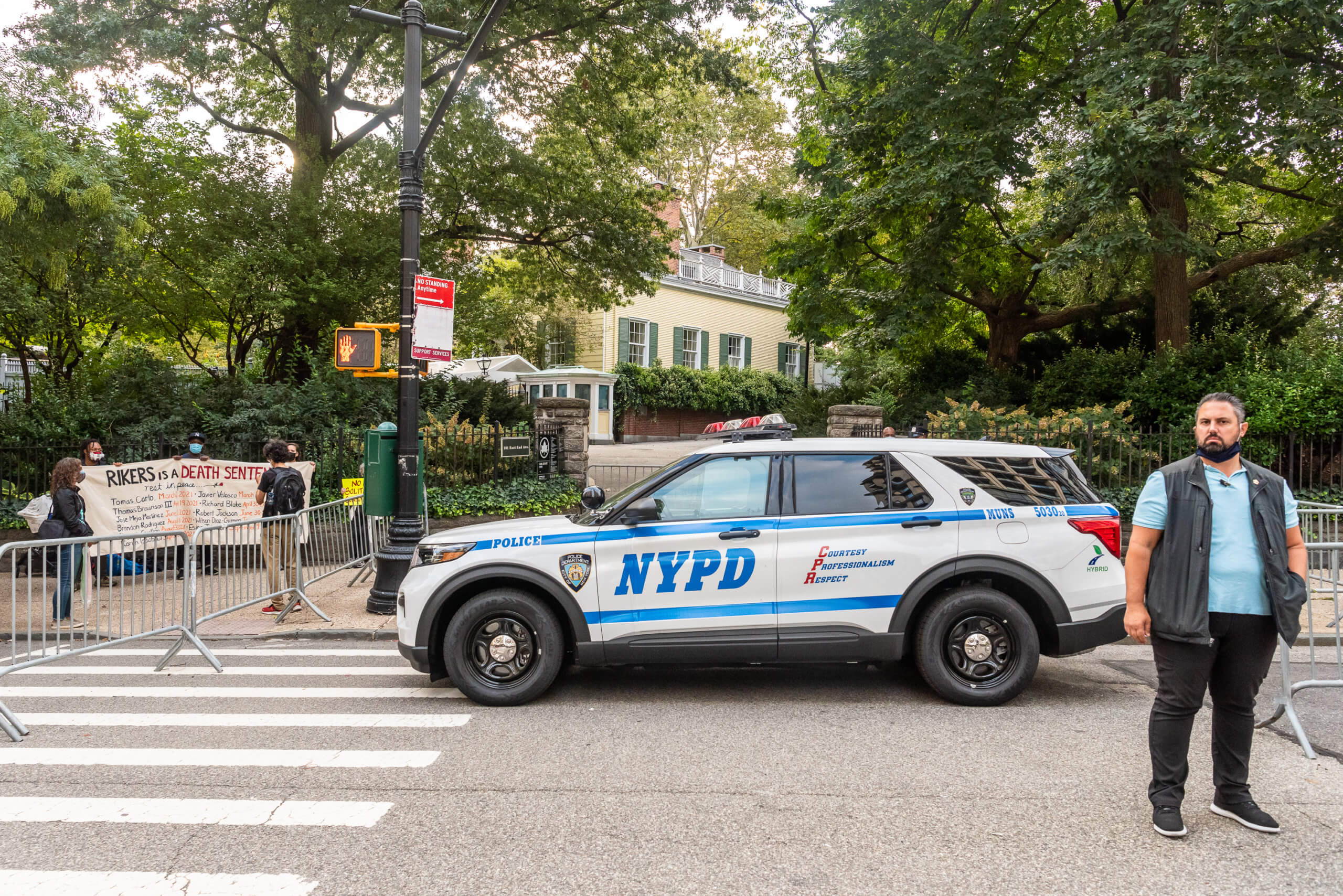
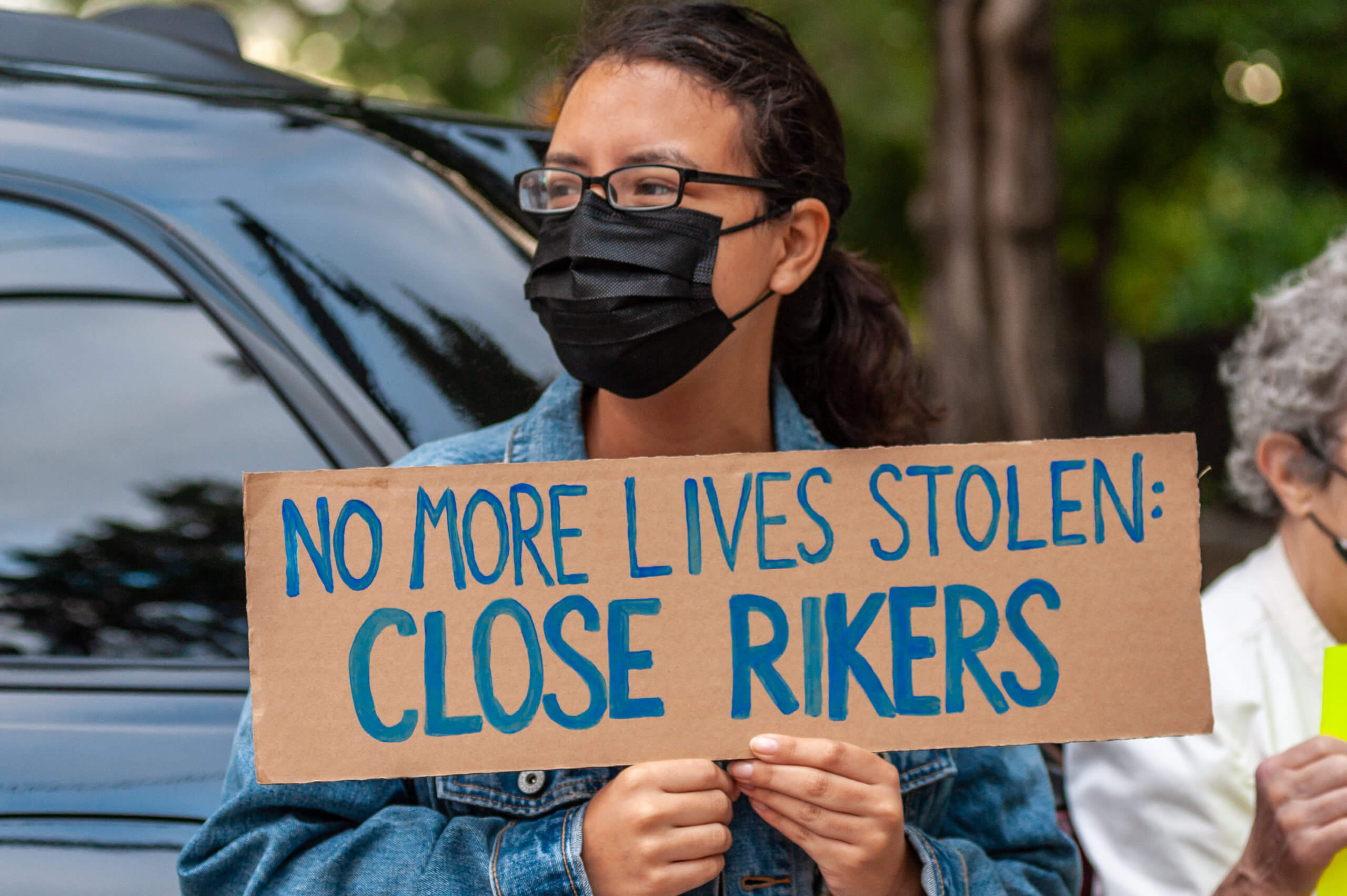
Warnings from the Nunez independent monitor and the Chief Medical Officer for NYC’s jails have brought attention to the crisis that has been growing on Rikers Island for months — along with the tragic deaths of Brandon Rodriguez on Aug. 10, Segundo Guallpa on Aug. 30, Esias Johnson on Sept. 7, and Karim on Sept. 19.
Amid a steadily rising jail census and mass absenteeism by correction officers, incarcerated people are being denied food, medical attention, transport to court dates. According to reports, inmates are locked in showers amidst feces and left in lockdown for hours at a time or longer when their units are unstaffed, including suicide watch units.
Johnny Perez, director of the U.S. Prisons Program for the National Religious Campaign Against Torture, spend a total of three years in solitary confinement for cannabis consumption while in prison.
He has made it his mission to end solitary confinement because of its adverse effects on mental and physical health.
While correctional officers claim solitary confinement deters violence and gang activity, it ignores the long-lasting effects on the mind and body and accounts for 50% of suicides.
“We have to draw attention to the fact that now 11 people have died on Rikers Island, and the Mayor’s plan actually does not address any of the concerns of the people,” Perez said.
He urged the Mayor to release as many people as possible and called on district attorneys to divert people as much as possible.
“If the city cannot keep people safe while on Rikers Island, they should not be sending people to Rikers,” Perez stressed.
Mayor responds at briefing
In his morning briefing, de Blasio said that the key to solving the crisis at Rikers was staffing and promised to put resources forward to bring additional staff on board.
He also said the city would crack down on fake sick calls by correction officers calling their action “a massive disservice to their fellow officers and the people in New York City.”
“We’re not going to accept them,” Hizzoner said. “We’ve made it very clear that anyone who calls in sick and isn’t really sick, will be suspended, will lose pay.”
De Blasio also had a stern message for the Correction Officers’ Benevolent Association (COBA), which the city sued on Monday over the rising number of AWOL officers assigned to Rikers, accusing the union of orchestrating an illegal work stoppage.
“We have seen too many times that they have not addressed the situation as they are required to by law, under state law,” de Blasio stressed. “The union has to do the right thing for the people of this city by making sure that people show up for work and not discouraging people from doing their job.”
In response to the lawsuit, COBA President Benny Boscio called the suit “meritless” in a Daily News report, adding, “If anyone is well-versed in violating the law, it’s our criminally negligent Mayor, who hasn’t done his job for the past eight years.”



